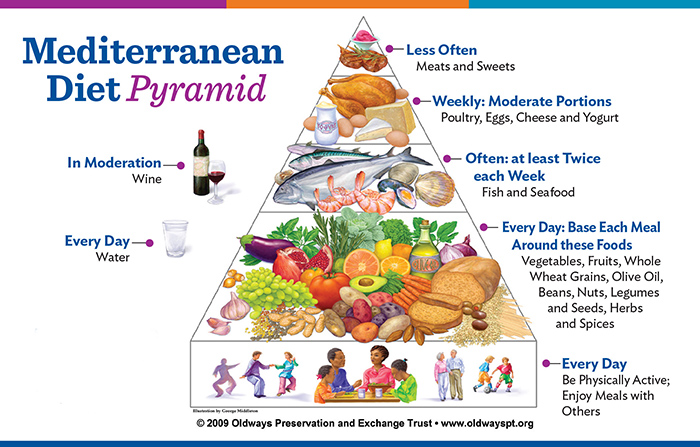
Esposito K. Table 4 Relationships between adherence to MD, motivation and learning strategies. Accessed May 28, Conclusions The main conclusions from the present research highlight the importance of better dietary patterns and high adherence to a MD, particularly through a higher consumption of fruits, vegetables, fish, cereals and nuts. Brain Res. What’s the Mediterranean diet? A meta-meta-analysis of the effect of physical activity on depression and anxiety in non-clinical adult populations. The traditional Mediterranean diet originated in the olive-growing areas of the Mediterranean region and has a strong cultural association with these areas. Gluten-free diet Glycemic index diet Gout diet: What’s allowed, what’s not Grocery store secret: Shop the perimeter Slide show: Heart-healthy eating after acute coronary syndrome How plant-based food helps fight cancer Improve brain health with the MIND diet Intermittent fasting Is gluten-free a healthy way to eat? In the long term, it is expected that such efforts can help shift diets towards more healthy and sustainable directions.
The Mediterranean diet is a style of eating rather than a diet plan. It emphasizes eating foods like fish, fruits, vegetables, beans, high-fibre breads and whole grains, nuts, and olive oil. This style of eating includes limited red meat, cheese, and sweets. A Mediterranean-style diet may improve heart health. It contains more fat than other heart-healthy diets. But the fats are mainly from nuts, unsaturated oils such as fish oils and olive oil, and certain nut or seed oils such as canola, soybean, or flaxseed oil. These fats may help protect the heart and blood vessels. Here are some things you can do to switch to a more Mediterranean way of eating. The Mediterranean diet may also include red wine with your meal—1 glass each day for women and up to 2 glasses a day for men. Author: Healthwise Staff. Care instructions adapted under license by your healthcare professional. If you have questions about a medical condition or this instruction, always ask your healthcare professional.
There is an emphasis on plant foods, olive oil, fish, poultry, beans, and grains. The diet draws together the common food types and healthful habits from the traditions of several different regions, including Greece, Spain, southern France, Portugal, and Italy. Studies suggest that people who live in the Mediterranean area or follow the Mediterranean diet have a lower risk of various diseases, including obesity, diabetes, cancer, and cardiovascular disease. They are also more likely to enjoy a longer life than people in other regions. Key ingredients of the diet include fresh fruits and vegetables, unsaturated fats, oily fish, a moderate intake of dairy, and a low consumption of meat and added sugar. Studies have linked these factors with positive health outcomes.
